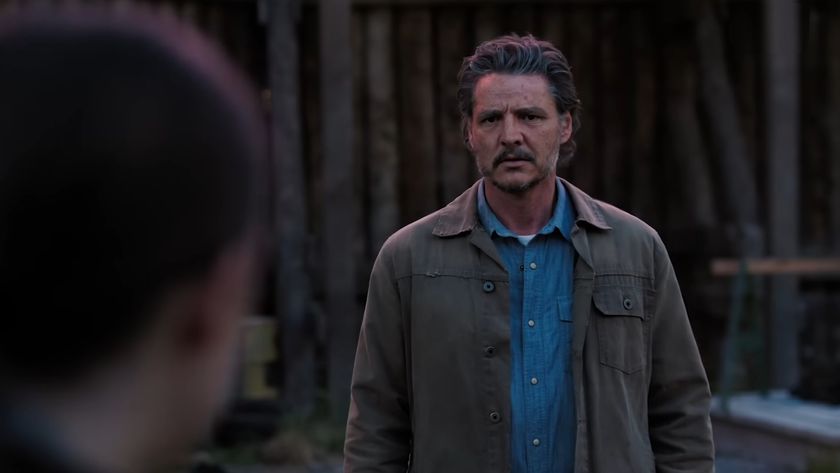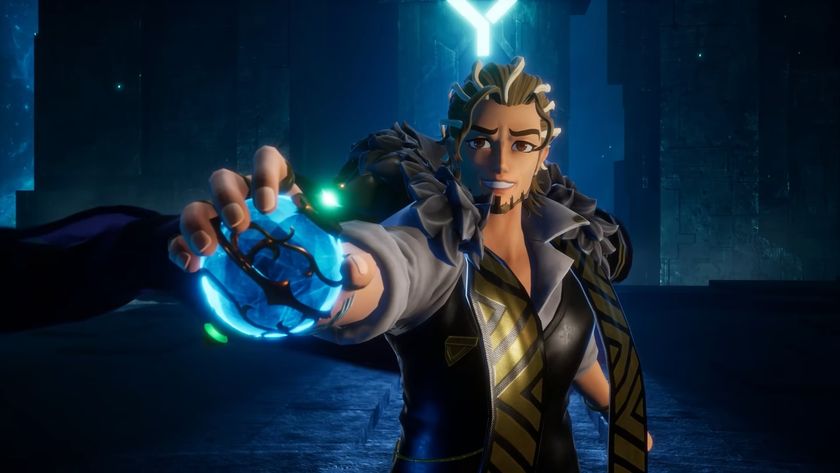In Joe Hill’s forthcoming second novel, the follow-up to 2007's Heart-Shaped Box, a guy wakes up to find that he’s grown a pair of demonic horns. But that’s just the first shock for Ig Perrish, who soon discovers that the horns somehow causes everyone he encounters to unburden their most private, intimate thoughts. Ultimately, this leads Ig on a path of vengeance, as he learns the identity of the man who killed his former girlfriend...
The author explains that the basic concept appealed because he’s always found literary “moments of confession” appealing.
“Sometimes you get a character at the point of confession and it will turn out that they’re better than you thought they were”, says Hill. “The protagonist of Heart-Shaped Box is this ageing heavy metal rocker and when we meet him, he seems to be a pretty thoroughly selfish and unpleasant man. But as the book proceeds, one of the things you see is that he’s a much better man than maybe you initially thought. More importantly, he’s a better man than he thinks – he’s sort of sold himself a bill of goods about who he is.”
Ig’s “gift” causes him to hear some truly appalling things, as people casually share their darkest secrets.
“To a degree everyone has terrible things that they think - I think it’s just human nature”, says Hill. “People have these dark thoughts and dark fantasies, but that’s not all they think. In fables, if you examine the Devil as a character, maybe one reason why he revels in the ruin of humanity is because all he can see is the bad stuff. Of course, the challenge with the book was: Ig has the powers of the Devil and he sees everyone’s worst side, no-one can hide their terrible secrets from him, and that’s exciting... But I also had a desire to have some conversations which weren’t people confessing, but even better, people lying!”
So while the book kicks off with Ig meeting person after person who spills their guts, that’s not all there is to it.
“There’s not a single fantasy element in part two of the book”, Hill points out. “It’s almost a purely mainstream story.”
Sign up to the SFX Newsletter
Get sneak previews, exclusive competitions and details of special events each month!
It was after Hill had written that second section, entitled “Cherries”, which flashbacks to the youth of the central characters, that the book really came together.
“As it went along it become progressively more fun for me to write, because then I knew who Merrin [Ig’s late girlfriend] was and I knew who Ig was, and the whole book sort of condensed around that part.”
Towards the end it becomes a different kind of book again, as we learn more about a villain of the piece.
“There’s also a part of the book which I consider sort of a mini Jim Thompson novel, and that’s Lee Tourneau’s story. We get this standalone 100-page novella about what Ig sees in Lee’s head, and he’s sort of the perfect sociopath. That was fun to write too, but pretty horrible! He’s a mad old boy!”
Over the course of the book, Ig slowly turns into a devil. So did Hill do much research about Old Nick himself?
“I did some research that was incredibly helpful but came a little bit too late to do much good, because the story had been pretty much hammered out. I read a book called God's Problem: How the Bible Fails To Answer Our Most Important Question - Why We Suffer, and that was useful. I’ve also written a short story, which hasn’t come out yet, called ‘The Devil On The Staircase’. That’s a faux folk tale, which pretends to be 100 years old, about the Devil. I actually did that on my 10th wedding anniversary. I promised I was going to take a break from writing but my wife could only stand two days of me taking a break! So I wrote this folk tale longhand about the Devil.”
And did his researches change his perception of the Devil?
“There’s a representation of Satan in Jobe in which he seems like he’s not so much the Devil as the Devil’s advocate”, notes Hill. “Part of the problem is that the Devil is one of the great characters in literature, but he’s kinda been cobbled together in a weird way. That goes into the history of Christianity, where originally the Devil was Baal… he’s one of the pagan demons which were actually good guys, and then Christianity came in and said, ‘No, no, that’s the bad guy’!”
Many writers struggle with the literary equivalent of “different second album syndrome” once they have their debut novel behind them. Does Hill feel like he’s become a different kind of writer over the last couple of years?
“Well, I think that a lot of writers struggle with the second novel”, he says. “There’s often a transition from the first novel to the second novel, regardless of whether the first book was a success or not. With the first book, you get this big burst out of your system. And then suddenly you’re shocked because you realise you gotta do a second book, and it takes a little while to figure out if you have anything else to say.”
“One of the things I did between books was I wrote a lot of comics - I wrote a comic book series, Locke And Key. I have a feeling now that everyone who wants to write fiction should be required to spend at least a couple of years as a journalist, or a couple of years writing comic books, y’know? Page one of Horns is what they call in the comic business a reveal, and there’s a lot of places where I think you can look at Horns and see that I did absorb something in the process of writing comics about finding an engaging way to stagger information and to block out a story. I’m tremendously glad that I have Locke And Key, because it was such a booster for me in between the two books - very engaging and funny, and something I could always do to blow off steam.”
So how exactly has writing for comics informed his novel writing?
“It’s about rhythm. It’s about timing”, says Hill. “I love the comic book form. I don’t think it’s an accident that so many of my favourite writers have spent years working in comic books: Alan Moore, Neil Gaiman... Brian K Vaughn, who did Y The Last Man, I just think he’s an astonishing writer. I love Warren Ellis. One of the great crime writers of my generation, I think, is Ed Brubaker, who does Criminal. There’s this whole community of writers who are doing compulsively readable work, and they’re all in comics - or at least, occasionally drift into comics and then drift back out. I think the thing about the comic book script is it’s as formal in its way as a Shakespearian sonnet. There are unspoken rules and a sort of commonly accepted approach, and it’s very tightly structured. There’s very little room to abandon that formal 22-page structure, and yet within the formality of that structure you can do anything, there’s incredible freedom.”
Yet that format forces a certain discipline upon you, of course. Hill agrees.
“There’s two things that novelists never should have given up, the two great literary mistakes of the 20th century. The first is they should never have given up illustration. Books with illustrations are awesome! It just satisfies the child in you to turn the page and have that Sidney Paget illustration of Sherlock Holmes, or to have the map in JRR Tolkien. That kind of texture makes a book a treasure, something you want to have on your shelf, something you want to hold. The other thing, which is even worse, is they never should have given up publishing books in an episodic format. Y’know, the way that Dickens wrote his books was the way that comic book writers work today: they’re published in weekly episodes, and there are certain expectations about the cliffhanger and timing and how information was revealed, and that was very common throughout the 19th century and even a little bit into the 20th century. But y’know, Hemingway came and shat on all that, and that was the end of it!”
Hill is now hard at work on his third novel, but is reluctant to talk about it at this stage.
“I’ve become more and more superstitious the older I've got, so I’m not gonna say anything about what I’m working on now, except that it’s going tremendously well, and I hope there will not be as long a wait between the second book and the third book. We’ll see.”
Ian Berriman
Horns is published by Gollancz on 18 February.
SFX Magazine is the world's number one sci-fi, fantasy, and horror magazine published by Future PLC. Established in 1995, SFX Magazine prides itself on writing for its fans, welcoming geeks, collectors, and aficionados into its readership for over 25 years. Covering films, TV shows, books, comics, games, merch, and more, SFX Magazine is published every month. If you love it, chances are we do too and you'll find it in SFX.

The Last of Us HBO showrunner says "flat out" that "I am not going to go past the game" like Game of Thrones did with George R.R. Martin's novels

New Black Mirror season 7 trailer reveals how Will Poulter's Bandersnatch character returns to the Netflix show - with a Sonic the Hedgehog namedrop











